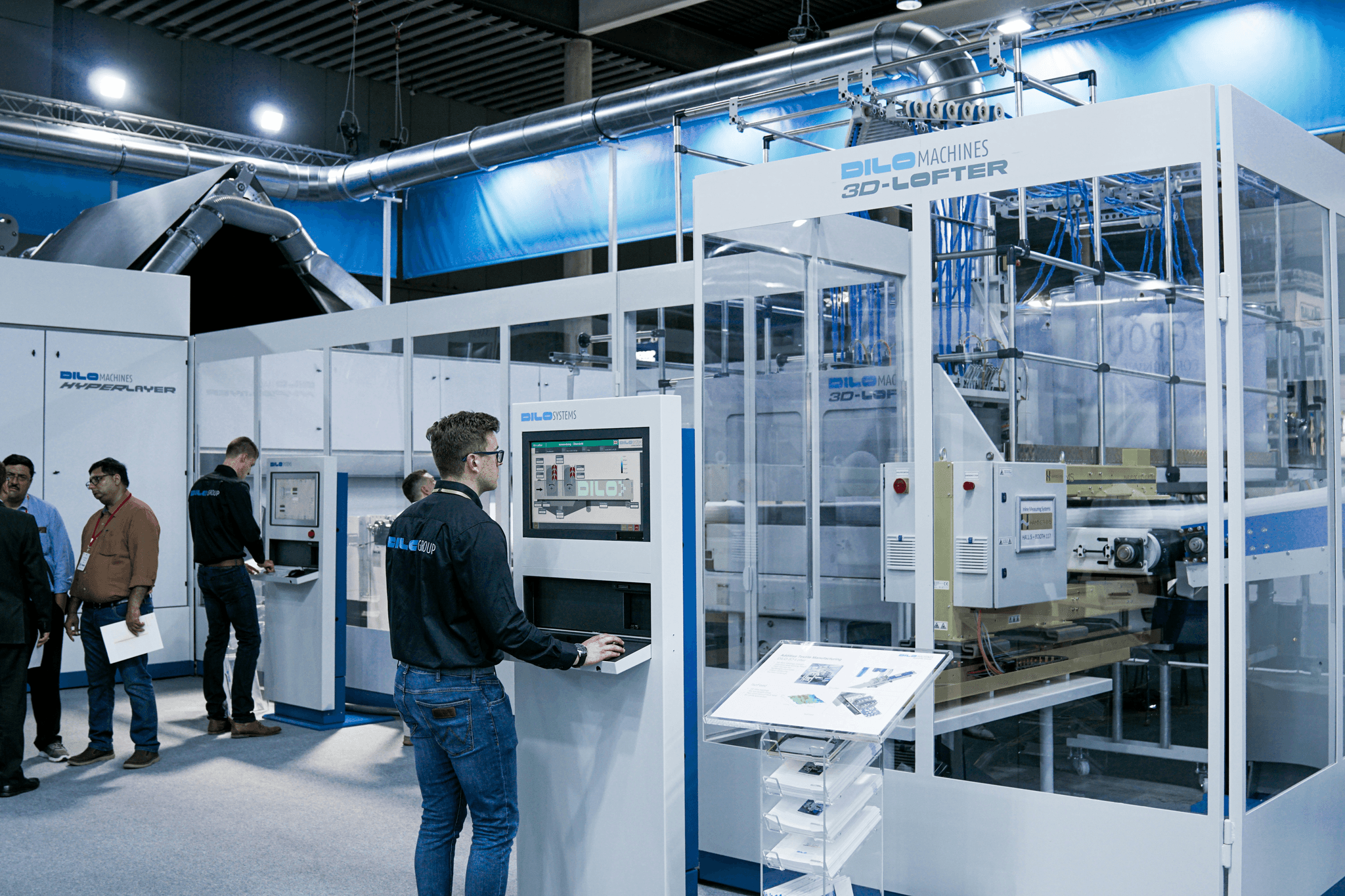Introduction

Navigating the world of manufacturing and supply agreements can feel like trying to find your way through a maze. Understanding the nuances of a manufacturing contract in China is crucial for businesses looking to tap into one of the largest manufacturing hubs in the world. This introduction will shed light on what a manufacturing and supply agreement entails, why clear terms are paramount, and highlight some key risks associated with manufacturing in China.
Understanding Manufacturing and Supply Agreements
A manufacturing and supply agreement serves as a foundational document that outlines the responsibilities, expectations, and obligations between manufacturers and their clients. It defines everything from product specifications to delivery timelines, ensuring that both parties are on the same page throughout the production process. When considering how to sign a valid manufacturing contract in China, grasping the essence of these agreements is essential for successful international trade.
Importance of Clear Terms and Conditions
Clear terms and conditions are not just legal niceties; they are vital for preventing misunderstandings that could lead to costly disputes down the line. In an environment as complex as China's manufacturing landscape, having well-defined agreements can mitigate risks significantly. By establishing explicit guidelines within your manufacturing contract for China, both parties can foster trust and ensure smoother operations.
Key Risks in Manufacturing in China
Manufacturing in China comes with its own set of challenges that businesses must navigate carefully. From intellectual property concerns to quality control issues, understanding these key risks is essential when entering into any agreement. Knowing how to avoid China manufacturing problems can be your best defense against potential pitfalls that may arise during production or shipment processes.
What is a Manufacturing and Supply Agreement?

Manufacturing and supply agreements are essential documents that outline the terms under which goods will be produced and supplied between parties. These agreements serve as a roadmap for both manufacturers and suppliers, ensuring clarity and mutual understanding. Understanding what constitutes a manufacturing contract in China is crucial for businesses looking to engage in international trade.
Definition and Purpose
A manufacturing and supply agreement is a legally binding contract that specifies the responsibilities of each party involved in the production process. Its primary purpose is to delineate expectations regarding product quality, delivery schedules, pricing, and payment terms. By establishing clear guidelines, this agreement helps prevent misunderstandings that could lead to disputes down the line.
Components of the Agreement
Key components of a manufacturing contract for China typically include product specifications, quantity requirements, pricing details, delivery timelines, quality control measures, intellectual property rights, and dispute resolution clauses. Each element plays a critical role in ensuring that both parties are on the same page throughout the manufacturing process. Without these components clearly defined, businesses may face challenges navigating their relationships with suppliers.
Role in International Trade
In international trade, especially when dealing with suppliers in China, a well-structured manufacturing and supply agreement becomes even more vital. It not only protects both parties' interests but also facilitates smoother transactions across borders by adhering to local laws and regulations. Additionally, clear contracts help mitigate risks associated with cultural differences and varying business practices that can arise when working internationally.
How to Sign A Valid Manufacturing Contract in China

Signing a valid manufacturing contract in China is crucial for ensuring that your business operations run smoothly and legally. Navigating the complexities of a manufacturing and supply agreement can be daunting, especially if you are unfamiliar with the local legal landscape. However, with the right knowledge and preparation, you can effectively secure your interests while minimizing risks associated with manufacturing in China.
Essential Elements for a Valid Contract
To create a robust manufacturing contract for China, certain essential elements must be included to ensure its validity. First, clear identification of the parties involved is necessary; this includes their legal names and addresses. Additionally, specific details about the products being manufactured, pricing structures, payment terms, delivery timelines, and quality standards should be meticulously outlined to avoid misunderstandings later on.
Moreover, incorporating clauses related to confidentiality, intellectual property rights, and termination conditions can safeguard your interests further. It’s also wise to specify dispute resolution mechanisms within the agreement—this ensures that both parties know how conflicts will be addressed should they arise. Ultimately, a well-drafted manufacturing contract in China serves as a solid foundation for successful collaboration and helps avoid potential pitfalls.
Understanding Chinese Legal Framework
Understanding the Chinese legal framework is vital when it comes to signing any manufacturing and supply agreement. The legal environment in China differs significantly from Western jurisdictions; thus awareness of local laws governing contracts is essential for enforceability. Contracts are generally governed by the Contract Law of the People's Republic of China (PRC), which outlines principles such as fairness and good faith.
Additionally, knowing how Chinese courts interpret contracts can help you navigate potential challenges down the line—especially regarding issues like breach or non-performance under your manufacturing contract for China. Familiarizing yourself with local regulations pertaining to foreign investment can also provide insights into compliance requirements that may affect your agreement’s validity.
Tips for Effective Negotiation
When negotiating terms such as pricing or delivery schedules within your manufacturing contract for China, aim for win-win solutions where both parties feel satisfied with outcomes achieved through compromise rather than confrontation. Lastly, always keep lines of communication open throughout negotiations; this fosters trust and lays groundwork for strong supplier relationships moving forward.
How to Avoid China Manufacturing Problems

Navigating the complexities of manufacturing in China can feel like walking a tightrope without a safety net. To ensure your manufacturing and supply agreement is effective, understanding common pitfalls, implementing best practices for quality control, and fostering strong supplier relationships are essential. Let's delve into these aspects to help you sidestep potential disasters.
Common Pitfalls in Manufacturing
One of the most significant pitfalls in a Manufacturing Contract in China is miscommunication regarding product specifications. Often, companies assume that their suppliers fully understand their requirements without providing detailed documentation, leading to costly mistakes. Additionally, failing to conduct thorough due diligence on potential suppliers can result in partnerships with unreliable manufacturers who may not adhere to quality standards or delivery timelines.
Another common issue arises from cultural differences that impact business negotiations and expectations. Many foreign businesses overlook the nuances of Chinese business etiquette and negotiation styles, which can lead to misunderstandings or strained relationships. It's crucial to be aware of these factors when entering into a manufacturing contract for China to avoid unnecessary conflicts.
Lastly, inadequate oversight during the production process can lead to serious issues down the line. Without regular inspections and communication with suppliers, you risk receiving subpar products that do not meet your specifications or quality standards outlined in your manufacturing and supply agreement.
Best Practices for Quality Control
Implementing robust quality control measures is paramount when navigating how to avoid China manufacturing problems effectively. Establishing clear quality benchmarks within your Manufacturing Contract in China will set expectations from the outset and provide a framework for evaluating supplier performance throughout the production process. Regular audits and inspections should be part of your strategy; this proactive approach helps catch issues before they escalate into larger problems.
Utilizing third-party inspection services can also enhance your quality control efforts significantly. These independent entities specialize in assessing compliance with industry standards and ensuring that products meet both local regulations and your specific requirements outlined in the manufacturing contract for China. By involving experts early on, you can mitigate risks associated with poor-quality products reaching consumers.
Moreover, fostering an open dialogue with suppliers about quality expectations creates an environment where issues can be addressed promptly rather than festering into larger disputes later on. This communication should flow both ways; encourage feedback from suppliers about potential challenges they face during production so that adjustments can be made collaboratively.
Importance of Supplier Relationships
Building strong supplier relationships is vital when considering how do you deal with suppliers in China effectively. Trust and mutual respect form the foundation of successful partnerships; investing time into nurturing these relationships pays dividends over time through improved collaboration and problem-solving capabilities during challenging situations related to your manufacturing contract in China.
Regular visits to supplier facilities are one way to strengthen these ties while demonstrating commitment beyond contractual obligations outlined within your manufacturing and supply agreement. Face-to-face interactions help establish rapport while providing opportunities for candid discussions about any concerns that may arise during production cycles.
Additionally, consider involving suppliers early on during product development phases—this inclusion fosters innovation as they share insights based on their expertise while also aligning expectations regarding deliverables as specified within contracts governing our partnership dynamic moving forward.
Are Contracts Enforceable in China?

When venturing into the realm of international trade, particularly in manufacturing, understanding whether contracts are enforceable in China is paramount. A well-structured manufacturing and supply agreement holds significant weight, yet its effectiveness hinges on the legal framework governing such contracts. The nuances of Chinese law can be intricate, but with the right knowledge, businesses can navigate these waters successfully.
Legal Framework for Contracts
The legal framework for contracts in China is primarily governed by the Contract Law of the People's Republic of China, which came into effect in 1999. This law outlines essential principles regarding contract formation, performance, and enforcement, making it crucial for anyone looking to sign a manufacturing contract in China. Understanding these legal foundations helps mitigate risks associated with potential disputes and ensures that your manufacturing contract for China stands on solid ground.
In addition to national laws, local regulations may also impact enforceability. Thus, when considering how to sign a valid manufacturing contract in China, it’s wise to consult local legal experts who can provide insights specific to your industry and region. This diligence not only enhances compliance but also fosters trust with suppliers—an essential element when dealing with suppliers in China.
Dispute Resolution Mechanisms
Dispute resolution mechanisms are vital components of any manufacturing and supply agreement because they dictate how conflicts will be resolved should they arise. In China, parties often opt for arbitration as a preferred method due to its efficiency and confidentiality compared to traditional litigation processes. Institutions like the China International Economic and Trade Arbitration Commission (CIETAC) are commonly used for resolving disputes arising from manufacturing contracts.
Moreover, it's important to include clear provisions regarding jurisdiction within your agreement; this ensures that both parties understand where any potential disputes will be settled. When drafting your manufacturing contract for China or negotiating terms with suppliers, ensure that you discuss dispute resolution openly—this proactive approach can prevent misunderstandings down the line.
Real-Life Examples of Enforceability
To understand how enforceable contracts truly are in practice within China's unique business landscape, consider real-life examples where companies have successfully navigated their agreements despite challenges. For instance, a foreign company faced quality issues with its Chinese supplier but was able to invoke a well-drafted clause from their manufacturing contract that mandated adherence to specific quality standards—ultimately leading to a favorable outcome through arbitration.
Conversely, there have been instances where vague terms led to unfavorable rulings due to lack of clarity in defining expectations within a manufacturing and supply agreement. These cases highlight why understanding how to avoid China manufacturing problems is crucial; clear terms not only protect your interests but also enhance the likelihood of successful enforcement should issues arise.
In summary, while contracts are indeed enforceable in China under its established legal framework and dispute resolution mechanisms exist for conflict resolution, success largely depends on careful drafting and an understanding of local practices when signing a valid manufacturing contract in this dynamic market.
How Do You Deal with Suppliers in China?

Navigating the complexities of dealing with suppliers in China can feel like walking a tightrope—one misstep, and you could find yourself in a precarious situation. Establishing a solid foundation built on trust and clarity is crucial when it comes to your manufacturing and supply agreement. Whether you're drafting a manufacturing contract for China or negotiating terms, understanding how to effectively manage supplier relationships can save you time, money, and headaches down the line.
Building Strong Supplier Relationships
Building strong supplier relationships is essential for the success of any manufacturing contract in China. Taking the time to foster mutual respect and understanding can lead to better communication, improved quality control, and ultimately a more favorable outcome for both parties. When you invest effort into nurturing these relationships, you'll find that your suppliers are more likely to go above and beyond to meet your expectations.
To achieve this, start by clearly defining roles within your manufacturing and supply agreement. Make sure both parties understand their responsibilities regarding production timelines, quality standards, and payment terms. Regular visits to the supplier's facilities can also reinforce commitment while allowing you to observe operations firsthand—this transparency helps build trust over time.
Communication Strategies
Effective communication is the lifeblood of any successful business relationship; this holds especially true when dealing with suppliers in China. To ensure that everyone is on the same page regarding your manufacturing contract for China, establish clear channels of communication from day one. This includes regular updates via email or messaging apps as well as scheduled video calls to discuss progress or address concerns.
Consider creating a shared platform where all relevant documents related to your manufacturing and supply agreement can be accessed easily by both parties. This not only promotes transparency but also minimizes misunderstandings that could arise from language barriers or cultural differences. Remember that being proactive about communication can help prevent potential issues before they escalate into significant problems.
Handling Disputes Effectively
Even with the best intentions and practices in place, disputes may still arise during your dealings with suppliers in China—it's just part of doing business! The key lies in how you handle these conflicts when they do occur; an effective dispute resolution strategy should be included within your manufacturing contract in China from the outset. Clearly outline procedures for addressing grievances so that both parties know what steps to take if issues arise.
When facing disputes, approach them calmly and professionally rather than letting emotions drive your response; this will foster an environment conducive to finding solutions rather than escalating tensions further. Open dialogue is essential—listen actively to your supplier's concerns while articulating yours clearly so that both sides feel heard throughout the process.
In summary, knowing how do you deal with suppliers in China requires building strong relationships through effective communication strategies while being prepared for potential disputes along the way—all integral components of ensuring successful agreements underpinned by enforceable contracts.
Conclusion
In the world of global commerce, understanding the nuances of a manufacturing and supply agreement is crucial for success. From defining clear terms to navigating the complexities of Chinese law, each step in signing a Manufacturing Contract in China can significantly impact your business outcomes. By being aware of potential pitfalls and knowing how to avoid China manufacturing problems, you position yourself for a smoother operational experience.
Summarizing Key Takeaways
To recap, a well-structured manufacturing and supply agreement serves as the backbone of any successful partnership with suppliers in China. Understanding what constitutes a valid contract is essential; this includes grasping the legal framework and essential elements that make it enforceable. Additionally, fostering strong relationships with suppliers while employing effective communication strategies can help mitigate risks associated with international trade.
The Role of AC&E in Contract Support
AC&E plays an instrumental role in providing contract support for businesses looking to engage with manufacturers in China. Their expertise ensures that your Manufacturing contract for China is not only legally sound but also tailored to your specific needs and industry standards. With AC&E’s guidance, companies can navigate complex regulations and enhance their negotiating power when signing a valid manufacturing contract in China.
Final Thoughts on Successful Agreements
Ultimately, success in international manufacturing hinges on clarity and collaboration within your agreements. By understanding how to deal with suppliers in China effectively, you can create a foundation built on trust and mutual benefit. Remember, well-negotiated contracts are not just pieces of paper; they are pivotal tools that safeguard your interests while fostering lasting partnerships.
